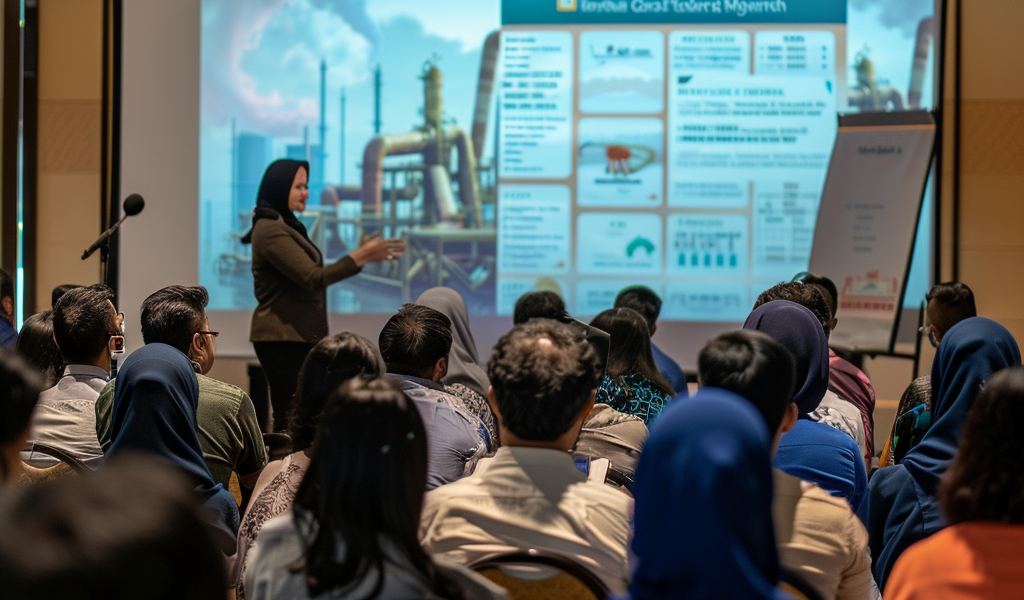Jakarta, Indonesia – In a recent statement, Saleh Abdurrahman, a member of the Downstream Oil and Gas Regulatory Agency (BPH Migas), emphasized the potential of Carbon Capture Storage (CCS) technology to prolong the use of fossil fuels in the country. Speaking at a seminar in Bandung, West Java, Abdurrahman highlighted that CCS is a viable solution for reducing greenhouse gas emissions while allowing for continued fossil energy utilization.
“CCS technology is an option to reduce greenhouse gas (GHG) emissions and can extend the period of fossil energy utilization,” Abdurrahman explained. His comments come as Indonesia aims for net-zero emissions by 2060 or earlier, with natural gas playing a critical role in the transition towards cleaner energy sources.
Abdurrahman referred to the next decade as the “golden age of gas in Indonesia,” predicting a growing reliance on natural gas for various activities across the nation. This perspective aligns with the National Energy General Plan (RUEN), which indicates that coal and gas will continue to be significant components of Indonesia’s energy mix until 2060.
During the seminar, Abdurrahman also discussed the importance of strategies to mitigate the environmental impacts of GHG emissions. He noted that many oil and gas wells have been depleted, making enhanced recovery methods essential to maintain or boost production levels.
Furthermore, he addressed the potential for carbon recycling, stating that various studies are underway to transform CO2 into a commodity, thereby creating economic opportunities from carbon utilization. This approach not only aims to enhance the economic value of carbon but also supports Indonesia’s commitment to achieving its Nationally Determined Contribution (NDC) targets.
As part of Indonesia’s broader climate initiatives, there are ongoing discussions regarding the standardization of CCS practices, which are crucial for effective implementation. The government is actively seeking to attract investments in CCS technologies, signaling a commitment to integrating innovative solutions in the energy sector.
The conversation around carbon capture and storage is increasingly relevant as Indonesia navigates its energy transition while balancing economic growth and environmental sustainability. By leveraging CCS technologies, the country aims to maintain its energy security while making significant strides in reducing carbon emissions.
With the global shift towards cleaner energy sources, Indonesia’s focus on CCS could position the nation as a leader in sustainable energy practices within the region. The integration of CCS technology not only addresses immediate environmental concerns but also aligns with long-term economic strategies, ensuring that fossil fuels can coexist with renewable energy sources in a balanced and responsible manner.
As the world grapples with climate change, initiatives like those proposed by BPH Migas will be critical in shaping Indonesia’s energy landscape. The successful implementation of CCS could serve as a model for other nations looking to mitigate their carbon footprints while still relying on traditional energy sources.
In conclusion, the discussions surrounding carbon capture and storage are pivotal for Indonesia’s energy future. The government’s commitment to reducing greenhouse gas emissions while extending the use of fossil fuels through innovative technologies like CCS reflects a strategic approach to achieving sustainability goals. As the country moves forward, the collaboration between government agencies, industry stakeholders, and research institutions will be vital in realizing the full potential of CCS and ensuring a cleaner, more sustainable energy future for Indonesia.





